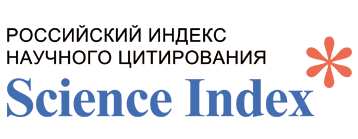ON THE ISSUE OF THE DEVELOPMENT OF LINGUOCULTURAL COMPETENCE
DOI:
https://doi.org/10.59102/kufil/2023/iss4pp169-179Аннотация
This article presents a theoretical model of the formation of linguocultural competence by applying a linguocultural approach in foreign language classes, which was developed as part of the master's thesis “Linguocultological aspects of foreign language teaching based on media materials”. The article presents the history of the emergence of linguoculturology as a science, as well as the relationship of this science with “linguistic anthropology”, “anthropological linguistics”,“sociolinguistics” and “ethnolinguistics”. Aspects of the application of the linguocultural approach in the context of the formation of linguocultural competence are considered. Also, the advantages of using electronic authentic media resources for the purpose of forming this competence are indicated due to their fullness with certain markers - linguoculturemes, which are represented in the form of linguistic phenomena. It is noted that within the framework of the educational process, electronic media texts can be used to form reading skills in foreign language lessons. As an example of the application of a linguoculturological approach using linguoculturemes taken from electronic media texts, the practical training section offers an excerpt of an English lesson for students of non-linguistic specialties of the 1st year of the university based on the materials of the article “Meet the people who took an evening class ... and changed their life” from the online newspaper The Guardian.
Ключевые слова:
linguoculturology, linguocultural approach, linguocultural competence, authentic materials, electronic media resources, The GuardianБиблиографические ссылки
Gosudarstvennyj obshheobjazatel'nyj standart vysshego obrazovanija. Prilozhenie 7 k prikazu Ministra obrazovanija i nauki Respubliki Kazahstan ot 31 oktjabrja 2018 goda № 604 [The state mandatory standard of higher education. Appendix 7 to the Order of the Minister of Education and Science of the Republic of Kazakhstan dated October 31, 2018 No. 604]. Available at: https://adilet.zan.kz/rus/docs/V1800017669#z1554 [in Russian] (accessed: 07.10.2023).
The Guardian. Available at: https://www.theguardian.com/international (accessed: 07.10.2023).
Vorob'ev V. V. Lingvokul'turologija (teorija i metody) [Lingouculturology (Theory and methods)] (Moscow, 1997).
Sharipova N. Je. Lingvokul'turologija kak novoe napravlenie v sisteme prepodavanija inostrannogo jazyka https://moluch.ru/archive/83/15467/ [Linguoculturology as a new direction in the system of teaching a foreign language] Molodoj uchenyj [Young scientist], 3 (83), (2015). Available at: [In Russian]. (accessed: 07.10.2023).
Duranti A. Linguistic anthropology: History, ideas, and issues. Linguistic anthropology (Cornwall, 2009).
Bayyurt, Y. Current perspectives on sociolinguistics and English language education, The Journal of Language Learning and Teaching, 3 (1), (2013). Available at: https://dergipark.org.tr/tr/download/article-file/209050 (accessed: 07.10.2023).
Nurova U. Y. The emergence and development of ethnolinguistics, Middle. European Scientific Bulletin, 8, (2021). Available at: https://cejsr.academicjournal.io/index.php/journal/article/view/185/178 (accessed: 07.10.2023).
Nurmuhambetova A. A., Cyganova, V. A., Issabaeva, B. Linguo-cultural aspect in learning foreign languages, Bulletin of KazNU. The philological series, 2 (174), (2019). Available at: file:///Users/mak_s/Downloads/2687-1-5147-1-10-20190818%20(1).pdf (accessed: 07.10.2023).
Hasanova S. Linguo-cultural aspect of interrelation of language and culture, International journal of English linguistics. Canada, (2014). Available at: https://ccsenet.org/journal/index.php/ijel/article/view/42630 (accessed: 07.10.2023).
Mazharova A.G., Gol'cova T. A. Ispol'zovanie didakticheskogo potenciala materialov SMI v obuchenii inostrannomu jazyku v nejazykovom VUZe [The use of the didactic potential of media materials in teaching a foreign language in a non-linguistic university], Otechestvennaja i zarubezhnaja pedagogika [Domestic and foreign pedagogy], (2020). Available at: https://cyberleninka.ru/article/n/ispolzovanie-didakticheskogo-potentsiala-materialov-smi-v-obuchenii-inostrannomu-yazyku-v-neyazykovom-vuze/viewer [In Russian] (accessed: 07.10.2023).
Koptelova I. E., Nechaeva E. I. Ispol'zovanie resursov SMI v Internete pri obuchenii anglijskomu jazyku [The use of media resources on the Internet when teaching English], Mir pedagogiki i psihologii [The world of pedagogy and psychology], (2017). Available at: https://scipress.ru/pedagogy/articles/ispolzovanie-resursov-smi-v-internete-pri-obuchenii-anglijskomu-yazyku.html [In Russian] (accessed: 07.10.2023).
Bagais N. W. The Effects of Contextual Clues on Incidental Vocabulary Learning, Journal of Applied Linguistics and Language Research, Volume 10, Issue 3, (2023). Available at: https://www.jallr.com (accessed: 07.10.2023).
Meet the people who took an evening class… and changed their life. Available at: https://www.theguardian.com/education/2023/jan/08/meet-the-people-who-took-an-evening-class-and-changed-their-life (accessed: 07.10.2023).
Received: 08.10.2023
Опубликован
Как цитировать
Выпуск
Раздел
Лицензия
Copyright (c) 2023 Bulletin of Shokan Ualikhanov Kokshetau University Philological Series

Это произведение доступно по лицензии Creative Commons «Attribution-NonCommercial» («Атрибуция — Некоммерческое использование») 4.0 Всемирная.











